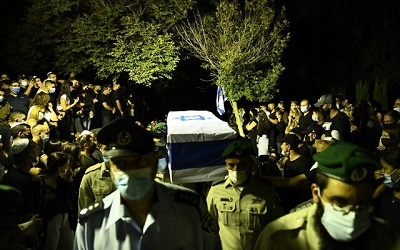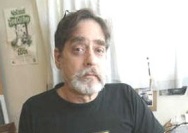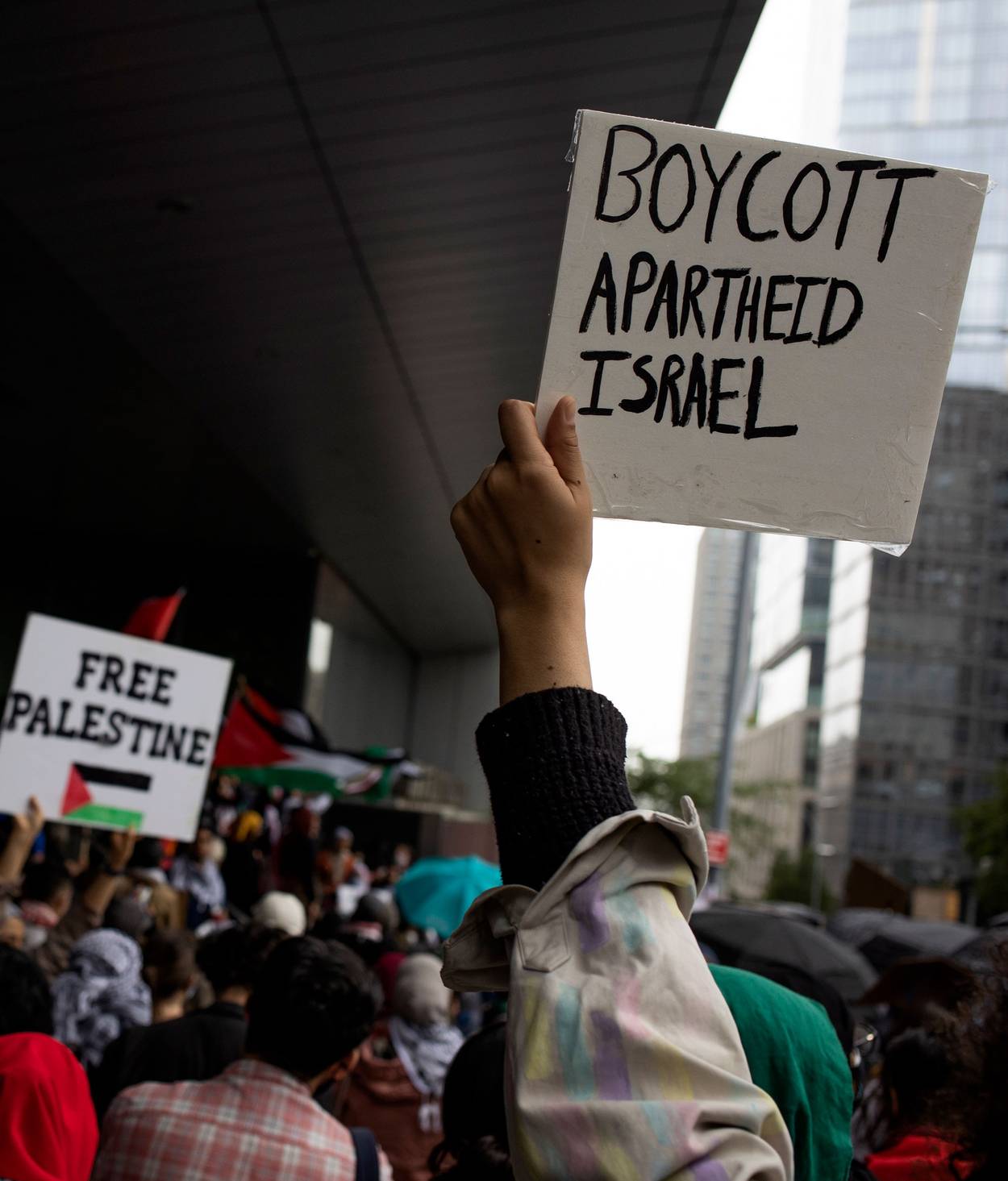 Pogrzeb sierżanta Barela Hadarii Shmueliego.
Pogrzeb sierżanta Barela Hadarii Shmueliego.
Vic Rosenthal
Tłumaczenie: Małgorzata Koraszewska
Straty są częścią wojny. Nie ma od tego ucieczki. Tragedia jest niezmierzona. Człowiek ma tylko jedną szansę na życie, na miłość, na posiadanie dzieci, na naukę, na zdobycie zawodu, na robienie wszystkich tych rzeczy, których pragnie, i odebranie tego wszystkiego, kiedy zaledwie zaczęło się, jest katastrofą.
Za każdym razem, kiedy utracone jest życie, szczególnie młode życie, rodzina i przyjaciele pogrążają się w bolesnej żałobie. W Izraelu, który jest w stanie wojny bez przerwy od momentu powstania w 1948 roku, jest zjawisko powszechnej żałoby, jakiego nie widziałem nigdzie indziej. Pogrzeby żołnierzy, policjantów i ofiar terroru ściągają czasami tysiące ludzi, z których wielu nie znało zmarłego. Media poświęcają wiele czasu i miejsca każdemu zabitemu. Dzień pamięci w Izraelu jest pełen ceremonii w całym kraju, by pamiętać i honorować tych, którzy padli.
Żydowscy Izraelczycy (z pewnymi wyjątkami) rozumieją, że mają obowiązek płacenia ceny za istnienie państwa i że częścią tej ceny jest również to, że niektóre z naszych dzieci stracą życie. Nic bardziej nie pokazuje jak ważne jest państwo dla żydowskiego narodu.
Można więc sobie wyobrazić gniew, kiedy młode życie kończy się, ponieważ ktoś we władzach był niekompetentny lub leniwy. Wojna jest wojną i żołnierze giną, ale rzeczą, którą robi dobra organizacja wojskowa, jest analizowanie swoich porażek i niepowodzeń, wyciąganie z nich nauki i dokonywanie zmian, żeby wyniki w przyszłości były lepsze. Kiedy zdarza się dająca się zapobiec śmierć, jest tak, ponieważ ktoś nie wykonał swojego zadania.
Istnieją winy mikro i winy makro. Na przykład, jeśli żołnierz ginie, ponieważ jego broń nie była prawidłowo konserwowana, to jest to wina mikro. Jeśli wielu ludzi ginie, ponieważ wróg, którego można było pokonać, mógł nadal zbroić się, raz za razem, a wynikiem jest niepotrzebna wojna, to jest to wina makro. Jedno i drugie jest wynikiem tego, że ktoś nie wykonał swojego zadania.
Tragiczna śmierć żołnierza straży granicznej, sierżanta Barela Hadarii Shmueliego była niepotrzebna i wynikła z połączenia win mikro i makro. Shmueliego, snajpera, skierowano do szczeliny muru, który stanowi część granicy między Izraelem a Gazą. Szczelina była umieszczona niewłaściwie (zbyt nisko) i niedostatecznie obserwowana przez kamery od strony Gazy. Wiadomo było, że to miejsce jest niebezpieczne. Broń snajpera jest starannie przystosowana do jego indywidualnych potrzeb, ale z jakiegoś powodu nie używał swojej osobistej broni. Ta, którą miał, zacięła się kilka razy w krytycznych momentach. Wzdłuż granicy jest strefa buforowa, na której nie powinno być arabskich „demonstrantów” (tj. wojowników Hamasu i ludzkich tarcz), ale w jakiś sposób pozwolono na wejście tam znacznej liczbie ludzi i podejście do samego muru, gdzie nie widzieli ich obrońcy. Próbowali pochwycić z zewnątrz broń Shmueliego i podczas walki jeden z nich wsunął pistolet do szczeliny i wystrzelił; kula trafiła w głowę Shmueliego (informacja z artykułu po hebrajsku w „Israel Hayom”, 1 września).
To są niektóre winy mikro, którymi IDF obiecuje zająć się. Jest także trwająca od dawna wina makro.
Popatrzmy na ogólną sytuację. „Demonstracje”, zorganizowane przez Hamas i inne terrorystyczne grupy w Gazie, nie są demonstracjami; są próbami ataków ludzkich fal na granicę Izraela. Bronią jej żołnierze IDF i straż graniczna; próbują używać środków kontrolowania tłumów, które nie są śmiercionośne, jak również “mniej niż śmiertelnego” ognia z karabinów Ruger kalibru .22 oraz bardziej śmiercionośnej broni, jeśli jest to niezbędne do zapobieżenia przełamaniu granicy. Takie przedarcie się przez granicę może skończyć się katastrofalnym atakiem terrorystycznym na liczne małe społeczności w tej okolicy.
Hamas i stowarzyszone z nim frakcje, wspierane i finansowane przez wrogów Izraela w Iranie, Turcji i Katarze, nieustannie pracują nad sposobami atakowania nas. Kopią tunele, wysyłają zapalające balony, organizują “demonstracje”, by przebić się przez naszą granicę, produkują i odpalają rakiety, próbują morzem dostarczyć terrorystów na plaże na północ od Gazy, strzelają pociskami przeciwczołgowymi w pojazdy na naszych drogach, uczą swoje przedszkolaki, by nienawidziły nas (żeby to trwało wiecznie) i podejmują wiele innych działań. Są kreatywni i aktywni.
Z drugiej strony, IDF – która ma pełną siłę, by zrównać całą Gazę z ziemią – nawet nie ściga tych kilkudziesięciu najwyższych przywódców Hamasu i innych frakcji i nie zabija ich. Kiedy rakiety Hamasu są odpalane na oślep na izraelskie miasta w nadziei spowodowania masowych ofiar śmiertelnych, wolimy przechwytywać rakiety i strzelamy w odwecie tylko, kiedy jest to absolutnie konieczne i to z wielką ostrożnością, by zabić tak niewielu ludzi, jak to możliwe. Kiedy zapalające balony palą setki hektarów naszej ziemi uprawnej i rezerwatów przyrody, nasze siły powietrzne bombardują puste instalacje wroga. A kiedy młody żołnierz ginie w obronie naszej granicy, IDF woli ulepszać procedury i wzmacniać granicę – zajmujemy się tylko winami mikro.
Jest niemal tak, jakbyśmy bali się walczyć, bo wtedy moglibyśmy ich rozwścieczyć. Zadowalamy się tylko odepchnięciem ich. Żeby broń Boże, żeby kogoś nie zranić.
Jest jednak znacznie, znacznie gorzej. Wczoraj, w dniu pogrzebu sierżanta Barela Shmueliego. Izrael pozwolił na wjazd do Gazy “dziesiątków ciężarówek” z materiałami budowlanymi po raz pierwszy od ostatniej miniwojny. Dzisiaj rząd ogłosił dodatkowe poluzowanie restrykcji. Gdybym nie był zbyt zawstydzony tą myślą, mógłbym powiedzieć, że płacimy im „haracz”. Ładną granicę macie tutaj, nie chcielibyśmy, by zniszczyła ją pełna przemocy „demonstracja”.
Słyszałem argument, że gdybyśmy odpowiedzieli bardziej agresywnie, to nasi żołnierze i przywódcy stanęliby przed oskarżeniami w Międzynarodowym Trybunale Karnym. Może – ale co jest ważniejsze? Być może nauczyliśmy świat, że ataki na Żydów są normalnym porządkiem rzeczy, a żydowska samoobrona jest prawdziwą zbrodnią. Jakoś Rosjanie i Irańczycy nie wydają się martwić o Międzynarodowy Trybunał Karny. Dlaczego my mamy to robić?
Sierżant Shmueli oddał życie, walcząc o państwo Izrael. Dlaczego państwo Izrael nie chce walczyć o siebie?
 Vic Rosenthal – Urodzony w Stanach Zjednoczonych, studiował informatykę i filozofię na University of Pittsburgh. Zajmował się rozwijaniem programów komputerowych. Mieszka obecnie w Izraelu. Publikuje w izraelskiej prasie. Jego artykuły często zamieszcza Elder of Ziyon.
Vic Rosenthal – Urodzony w Stanach Zjednoczonych, studiował informatykę i filozofię na University of Pittsburgh. Zajmował się rozwijaniem programów komputerowych. Mieszka obecnie w Izraelu. Publikuje w izraelskiej prasie. Jego artykuły często zamieszcza Elder of Ziyon.
 Tokyo Games 2020: Opening ceremony commemorates victims of 1972 Munich massacre
Tokyo Games 2020: Opening ceremony commemorates victims of 1972 Munich massacre




